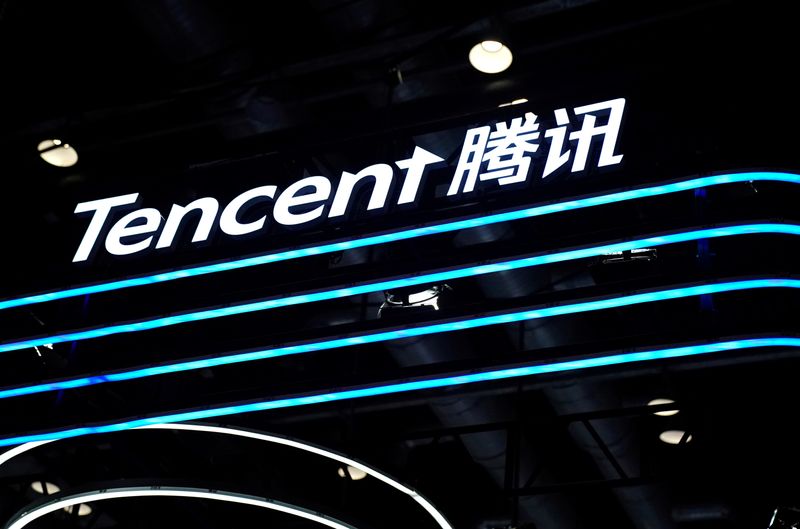By Pei Li
HONG KONG (Reuters) - Tencent's blockbuster game and solid advertising drove an 89% rise in quarterly profit at the Chinese gaming and social media group, helping it to beat forecasts on Thursday.
With its flagship game Honour of Kings reporting a record 100 million daily active users in the first 10 months of 2020, Tencent, the world's largest gaming firm by revenue, has benefited from growth of paying users for video games.
Tencent said on Thursday its profit was 38.5 billion yuan ($5.8 billion) for the three months through September. That was ahead of an analyst average estimate of 30.81 billion yuan, data from Refinitiv showed. Revenue rose 29% to 125.4 billion yuan.
The Chinese group, which celebrated its 22nd birthday on Wednesday has a solid pipeline of new games waiting to be released, including a testing launch of a mobile version of League of Legends in Asia last month.
Tencent reported a return to normal in advertising activity after the outbreak of the COVID-19 pandemic, with rapid growth in sectors such as education, internet services and e-commerce.
Its shares closed up 4.72%, against a 0.22% decline in the Hang Seng index, rebounding from a 7% drop on Wednesday when investors dumped shares in Chinese tech companies following publication of draft anti-monopoly rules.
These wiped hundreds of billions of dollars off the value of some tech giants including Alibaba (NYSE:BABA).
Tencent President Martin Lau told in a post-results call that the draft anti-trust regulations are not new or unique to China, adding that as tech companies get bigger the new regulations reflect the new reality.
Beijing is still supportive of the industry and Tencent will work with the regulators to ensure compliance, he added.
"For games, which are essentially individual products rather than a platform, I think they are less of a focus," Lau said.
China has also issued draft rules to boost the oversight of online micro-lending, a sector Tencent is also involved in the through WeBank, which derailed Ant Group's blockbuster IPO.
Lau said there will not be a lot of changes in Tencent's fintech strategy as a result of the proposed micro-lending rules and its business is in compliance with regulations.

Tencent said revenue from its cloud and other business services, a potential future growth engine, grew more slowly as a result of the lingering impact of the pandemic, with delays in areas such as project deployment and new contract sign-ups.